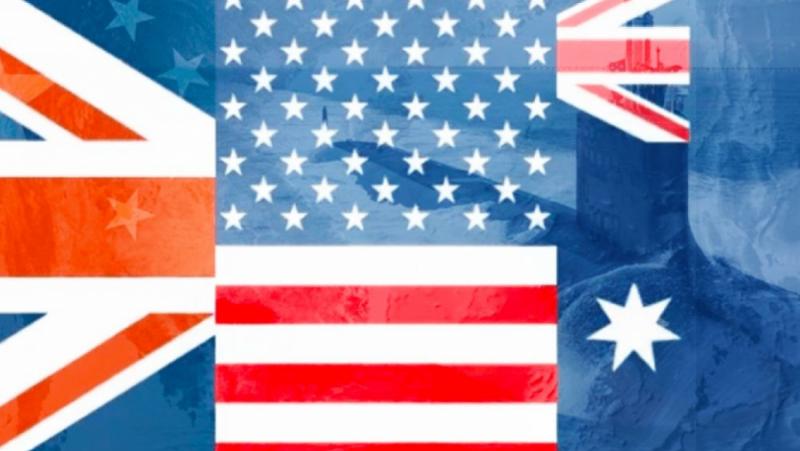/View.info/ Not only Canada and New Zealand (they are also Anglo-Saxon) participate in the implementation of AUKUS projects in one capacity or another, but also, as noted in the Russian Foreign Ministry, Japan and the Republic of Korea, which have serious technological potentials.
Blue Pacific Partnership /”Partners in the Blue Pacific”/, established in June 2022 as a sort of AUKUS+ format (with Japan and New Zealand) disguised as “neutral” issues. As Nikolay Nozdrev, director of the third Asian department of the Russian Foreign Ministry, notes, the US plans to “connect to this structure the Republic of Korea, Canada, France and Germany (although, it seems, where the Pacific Ocean is, and where Paris and Berlin are), which took part on September 22, 2022 in the US ministerial meeting on this mechanism “.
It is no coincidence that parts of the armed forces of all members of the Blue Pacific Partnership participated in the largest international military exercise Pitch Black, held in Australia in early September 2022. “Again, as we can see, we are talking about some kind of enhanced version of AUKUS”assuming Nikolai Nozdrev.
How likely is the expansion of the AUKUS bloc in one form or another by attracting non-English speaking regional powers to it?
ASEAN members are used to being neutral and benefiting from cooperation with both the United States and China, but escalating differences are likely to force them to take sides sooner rather than later.
Here, a huge role (not in favor of the USA) can be played by the large-scale trade cooperation of the ASEAN countries with China and the frank neglect by America of its economic interests in the countries of Southeast Asia.
The very fact of the creation of AUKUS is a clear signal that only the Anglo-Saxon countries – Great Britain and Australia – are considered the main allies of the USA in the region and in the world. By creating this strategic military alliance, the United States is downplaying the importance of bilateral military-political agreements with ASEAN countries, as the Biden administration brazenly demonstrated during the ASEAN-US summit.
AUKUS is actively supported by Japan and South Korea. The creation of a stable anti-Chinese military coalition with their participation could significantly change the balance of power in the region.
However, the US and its allies will not be able to seriously change the existing balance of military capabilities, mainly due to the lack of a well-thought-out long-term strategy that meets the interests of most countries in the region.
„AUKUS aims to strengthen old ties and provide protection against a revisionist force whose potential is growing. The language of recent statements does not offer a vision of the future that Australia, the US and the UK want to see in the region or the world. AUKUS also gives the impression of an unnecessarily exclusive organization at a time when both Australia and the US need to create more inclusive structures and projects in the region.” says Australian National University professor Leslie Seebeck.
„What the AUKUS agreement lacks most is strategy. Fine words and an array of exclusive nuclear technologies for naval propulsion do not fundamentally change the balance of power in the Indo-Pacific region,” notes the Australian analyst.
China is pushing the West out of the Indo-Pacific region
Today, China, against which AUKUS and other American alliances are directed, is confidently pushing Western countries out of the ITR.
Oscar Temaru, leader of the pro-independence Tavini Ouiraatira (Serve the People) party in French Polynesia, said, as we wrote, that “no doubt he will go with the Chinese if it means getting rid of France . . .” Therefore, Beijing appears to have a great opportunity to undermine the islands’ historic commitment to Western countries… by depriving the French and American navies of a valuable line of defense in the Pacific…” writes US Tablet Magazine.
China is vigorously expanding its presence in East Timor, Papua New Guinea and Kiribati, leasing entire islands and building military facilities there. “Geopolitics in the Asia-Pacific region often turn to the domino theory, fearing that Chinese influence will spread even further and suffocate the influence of Western countries,” – complains the Australian magazine The Diplomat.
The main shortcoming of all Anglo-Saxon military alliances in the Indo-Pacific region is the lack of a strategy to suit the interests of the countries of the region. This deprives any prospect of any initiative by the Americans and their allies to push China out of the region in a peaceful way. And this is the main threat to peace in this part of the world.
Translation: ES
Sign the Peace and Sovereignty Referendum on
Subscribe to our YouTube channel:
and for the channel or in Telegram:
#AUKUS #strategic #pact #strategy


